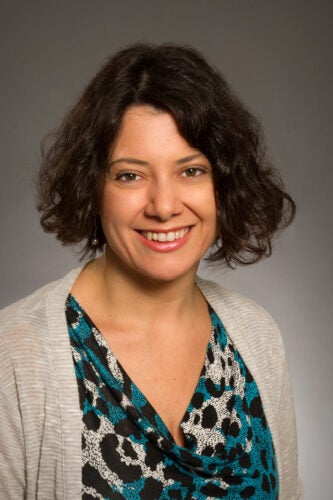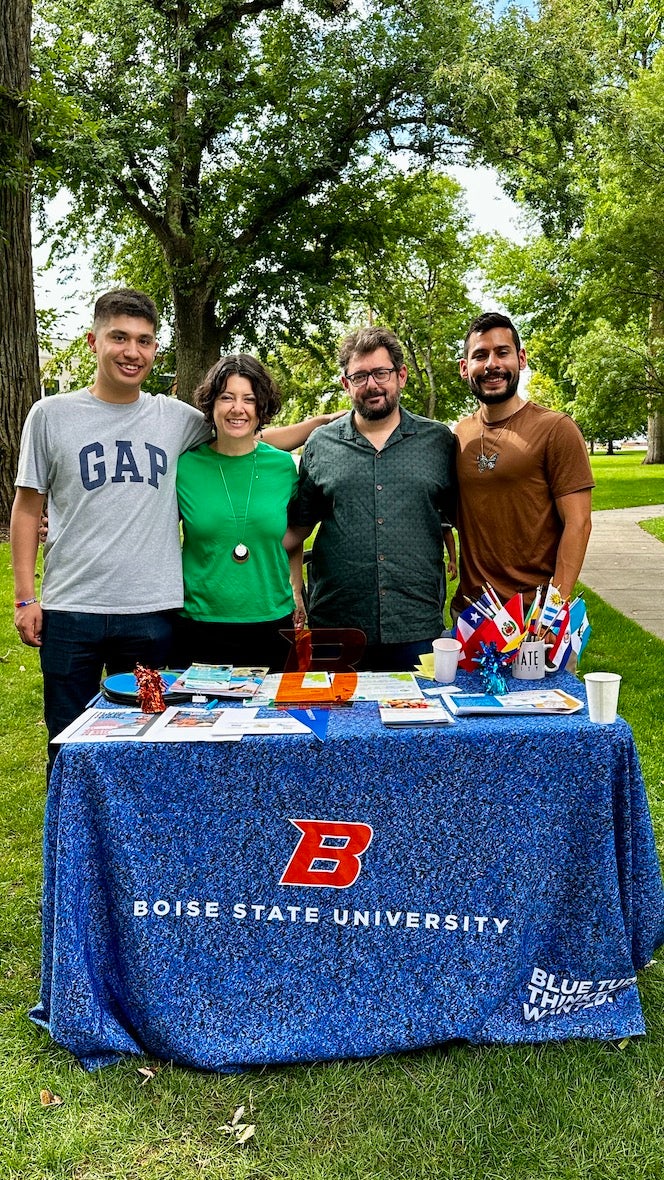
In the United States, the Hispanic population is estimated at 65.2 million. In Idaho alone, Hispanic residents make up 13.5% of the population, compared to the 19.1% nationwide. Yet in the scientific scene, research shows 98% of science publications are in English.
For Carolina Viera, a Boise State faculty member born in Uruguay, this is a discrepancy to address through research, education and supporting the student experience. A native Spanish speaker, Viera lived in Uruguay until 2002, where she earned a bachelor’s degree in secondary education with an emphasis in foreign language teaching. She spent nine years teaching secondary education. She then pursued a master’s degree in Hispanic linguistics at the University of New Mexico and her doctorate in Spanish linguistics from the University of California in Davis.
As a Spanish professor in the Department of World Languages, Viera hopes to inspire her students to take pride in their heritage and reclaim their identities in a society that often pressures them to hide their native language to fit in and be accepted. She teaches the Spanish for the Professions and a Latinx Culture and Language courses designed with heritage learners in mind.

In addition to teaching, Viera leads Project Scientia, one of Boise State’s Vertically Integrated Projects and a Spanish for the Community course. In these two courses, graduate and undergraduate students work to make science accessible to the Spanish speaking population. She understands that science communication plays a vital role in the scientific process, but often faces barriers that limit community engagement and lead to mistrust in science.
“My purpose in doing this is to provide the students and researchers with this possibility to translate science, not to a different language but to a different purpose. To communicate with a different community, not the discipline community, a broader community,” Viera said.
Viera and her team of students have worked to bridge the gap between science communication and the Spanish language since 2020. The team actively participates in National Science Foundation Established Program to Stimulate Competitive Research projects GEM3 and I-CREWS to create learning materials in Spanish. They recognize that research on energy and water benefits society as a whole, and should be as accessible as possible.
Project Scientia also works with the Nature Conservatory of Idaho to support a conversation about the effect of climate change in Idaho and collaborated with a multidisciplinary team to advance public health for farmers in the Latinx community in Idaho. The team is student-led and provides graduate students with mentorship skills and undergraduate students with a hands-on experience that allows them to use their family language with the purpose of science communication.
As she continues to inspire her students and collaborate on impactful projects, Viera remains dedicated to advancing the intersection of science, language and communication. Her work not only enhances the educational landscape but also fosters a more inclusive and informed community.
This publication was made possible by the NSF Idaho EPSCoR Program and by the National Science Foundation under award number OIA-2242769.
- Article written by Zenaida De La Cruz